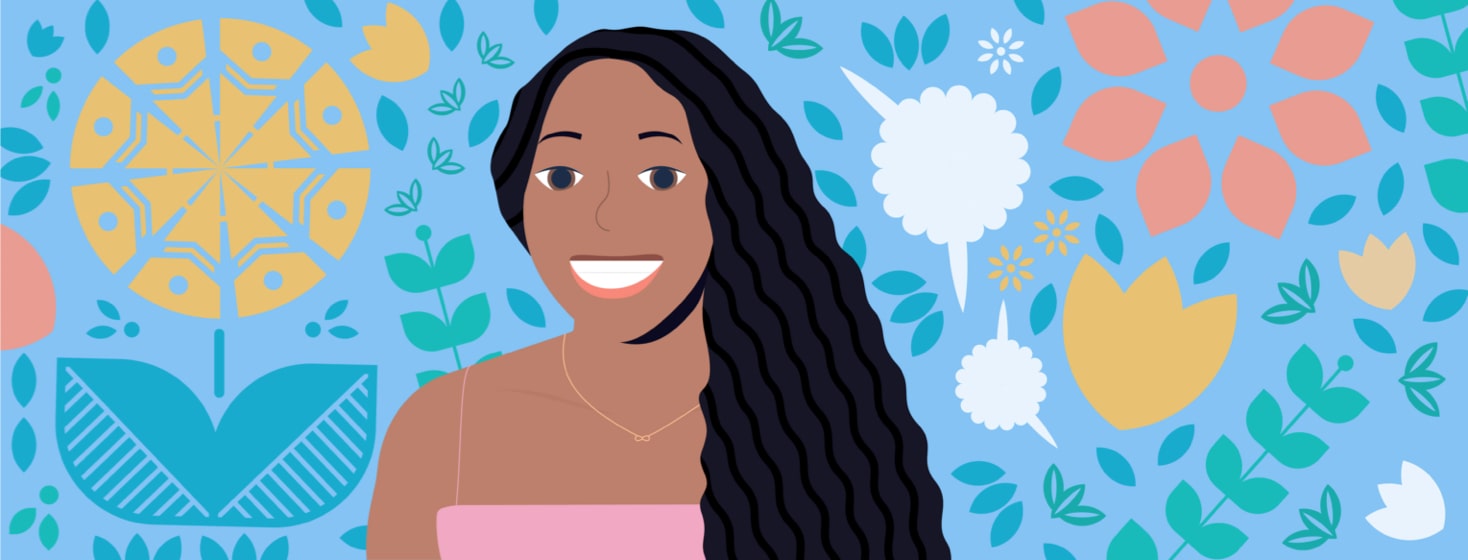An Interview With Tito (@hersickledjourney)
The Editorial Team at Sickle-Cell.com is highlighting people in the sickle cell community and their journeys in a series of Instagram interviews. We talked to Tito, aka @hersickledjourney, about her sickle cell story and what it means to be a sickle cell warrior.

Growing up with sickle cell
Editorial: What is your personal experience with sickle cell?
Tito: My experience with sickle cell changed as I grew older. Initially, when my health was the sole responsibility of my parents, I just did what I was told. I didn’t really know what sickle cell was, but I knew the things I had to do to stay healthy, e.g., wrap up when it was cold and drink a lot of water.
Eventually, as I got older and developed a deeper understanding of sickle cell, I was able to take a more intentional and proactive stance when it came to my health. Up until 2019, I was using hydroxycarbamide to help manage my health; however, my care plan changed to regular red cell exchange transfusions, which have been very useful in managing the symptoms of sickle cell and reducing the risk of sickle cell-related complications.
Becoming an advocate
Editorial: What encouraged you to share your sickle cell journey on Instagram as an advocate?
Tito: As a child, I saw that there weren’t many, if any, places I could go to to get relevant information about what to expect from my life with sickle cell, and I had no one to relate to. In addition, the people around me who didn’t have sickle cell didn’t really know what it was, so I had to go through a lot and learn a lot on my own.
I started sharing about my sickle cell journey to make sure that other people have someone to relate to and so that they know that they are not alone. I also aim to raise awareness amongst those without sickle cell, so they have a better understanding of the condition.
View this post on Instagram
Receiving care
Editorial: What is your experience with doctors? Do you have a supportive team of doctors? How have you been treated in the ER?
Tito: Generally, I have had a really good experience with doctors who have been put in charge of my care. I find that in areas such as London, where there is a greater number of sickle cell patients in comparison to other areas in the UK, doctors are better at caring for sickle cell patients, as they are more familiar with what we go through.
While I attended university outside of London, I had a more challenging time getting the care that I needed. There were instances when I have been turned away from accident and emergency because they did not understand the amount of pain I was in.
Whenever I am about to be admitted to the hospital, I find that I have a much smoother experience when I call the hematology ward ahead of time. That way they can start preparing a bed for me, and I can get admitted sooner.
In general, there needs to be an increase in the education that medical professionals receive when it comes to sickle cell. There are too many barriers between us when we are in pain and the treatment we so desperately need.
Editorial: Any advice for how to cope with healing setbacks and the tough days with sickle cell?
Tito: I saw a quote that said, “So far, you have survived 100% of your toughest days.” This quote really resonated with me. There are so many times where we become frustrated because of the complications that arise as a result of our health. In those moments, we should remember how far we have come and remind ourselves that we can handle anything that we face!
Editorial: Anything else you would like to add?
Tito: To my fellow sickle cell warriors – you are not a burden. Do not let anyone or anything make you feel like you are! Dealing with sickle cell is not easy, but there are people who will help you on your journey.
You can follow Tito's sickle cell journey on Instagram @hersickledjourney.
Can you relate to Tito? Let us know in the comments.

Join the conversation